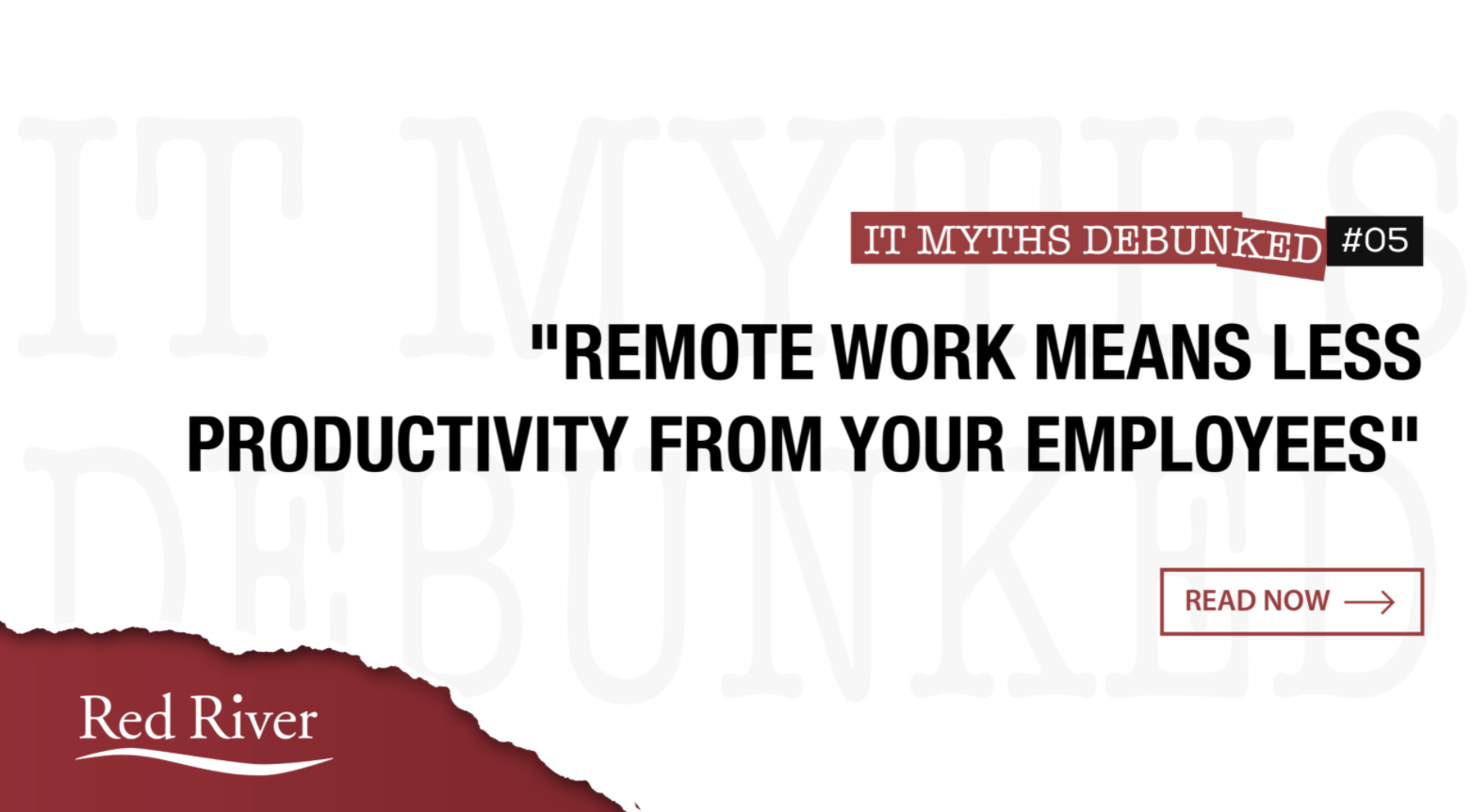
Debunking the Remote Work Unproductivity Myth
Are people unproductive when they work remotely? Imagine someone struggling to work at a kitchen table with children or pets (or both) running around, and it certainly becomes difficult to imagine long-term success. But the truth is that remote work unproductivity is largely a myth — at the least, it hasn’t been true for a while.
Remote work is going to become a standard in many industries. And ultimately, it’s likely better for both companies and employees.
Why Do People Think the Remote Work is Unproductive?
In short, because it was.
“Telecommuting” has been around in some form or another since the ‘70s, but was more of a theory or a test case. The internet made it more feasible in the ‘90s, but it wasn’t until the late ‘00s, when employees were doing the bulk of their work online, that many major companies tried to move to remote work. But there were barriers. In 2013, Yahoo became one of the first major corporations to ban working from home. But it wasn’t the last. Working from home became, in public perception, “lazy.” People assumed that the issue was the workers — rather than the infrastructure that supported them.
First, without communication, remote work falls apart. People need to be able to talk to someone working 1,000 miles away as easily as they can walk to someone 10 feet away; that requires technology that just wasn’t available back then. Now, with advanced technologies like Microsoft Teams, it’s far easier.
That’s easy enough to understand. But the second problem wasn’t as simple. That had to do with the traditional 9-to-5 workday.
Divorcing the “40 Hour Work Week” from Achievement Cycles
One Stanford study discovered that employees were able to be 16 percent more productive when working from home. In general, remote work productivity statistics are very positive. But remote work productivity also hinges on a change in processes.
In reality, many people can’t really be productive more than 4 hours a day. In the 8-hour work day, they clock-in and mentally check-out. When they work at home, they may not clock in for eight whole hours. But they’re actually getting more done.
It’s an issue of focus. While companies want people to be available and busy during the workday, most people aren’t really focused the entirety of the time. When people spend 18 hours at work, they usually aren’t getting a lot done. There’s too much mental fatigue and fog.
So, when companies transition to remote work, they often have to ditch the idea of a 9-to-5 work schedule. Instead, they typically commit to a milestone-based or achievement-based cycle. It’s easier to tell employees “these accounts have to be processed by the end of the week” than “you need to spend 8 hours a day processing these accounts.”
The True Productivity of Remote Work
Are remote workers more productive? All the data points to employees being more effective when they are allowed to work remotely. Employees are able to achieve better work-life balance, are able to work when they are more focused and are able to have complete control over their working environments. When employees don’t need to worry about things like daycare or commutes, they are able to devote far more of their mental energy toward work. And when businesses are able to facilitate this, they are able to court better employees.
Issues only arise when employers try to transition to a remote environment without changing their existing processes and metrics.
Recommendations for Managers and Employees
There are those who thrive in a remote work environment and those who don’t. In many respects, companies that provide hybrid options and flex-work options are often better. Employees are able to come in when they need to meet face-to-face and can work from home normally.
To make the most out of remote work:
- Managers need to utilize the right technology and processes. Employees always need to know where to contact someone and how best to contact them. It should always be clear to employees who is responsible for which projects and tasks — and they should be able to easily view tasks and milestones.
- Employees need to be able to work in the ways that work best for them. Some employees may not be able to focus at home; these employees may be afforded options such as an in-office desk for higher priority projects.
- Management needs to change its focus. “Middle management” is undergoing an extraordinary transition, where it’s no longer their position to “make sure work is getting done,” but rather to make sure that employees are given the tools they need to get things done.
Fears about working from home productivity are largely based on old statistics. Many companies fear remote work because they fear losing control over their employees. But this is an error; by hiring the right employees, companies can gain more by giving those employees the freedom to thrive.
The major issue with WFH productivity is that employees aren’t always given the tools they need, on a technological level, to get the job done. Contact the experts at Red River to your team fully equipped with the right tools today.
written by
Corrin Jones
Corrin Jones is the Director of Digital Demand Generation. With over ten years of experience, she specializes in creating content and executing campaigns to drive growth and revenue. Connect with Corrin on LinkedIn.





